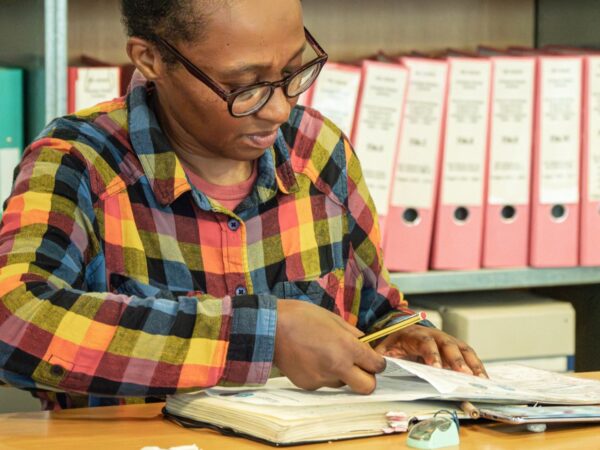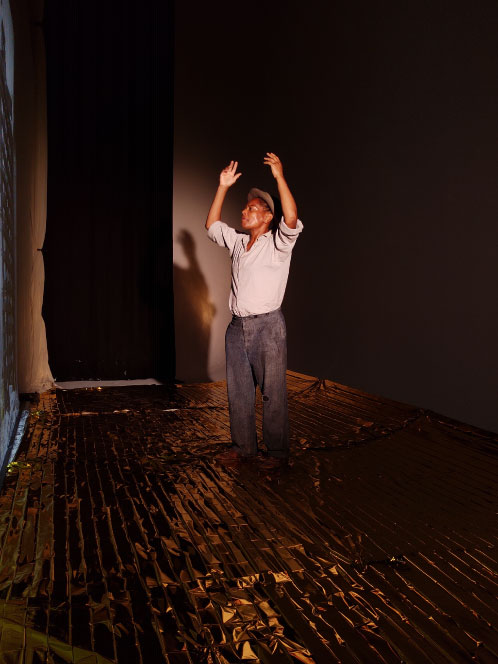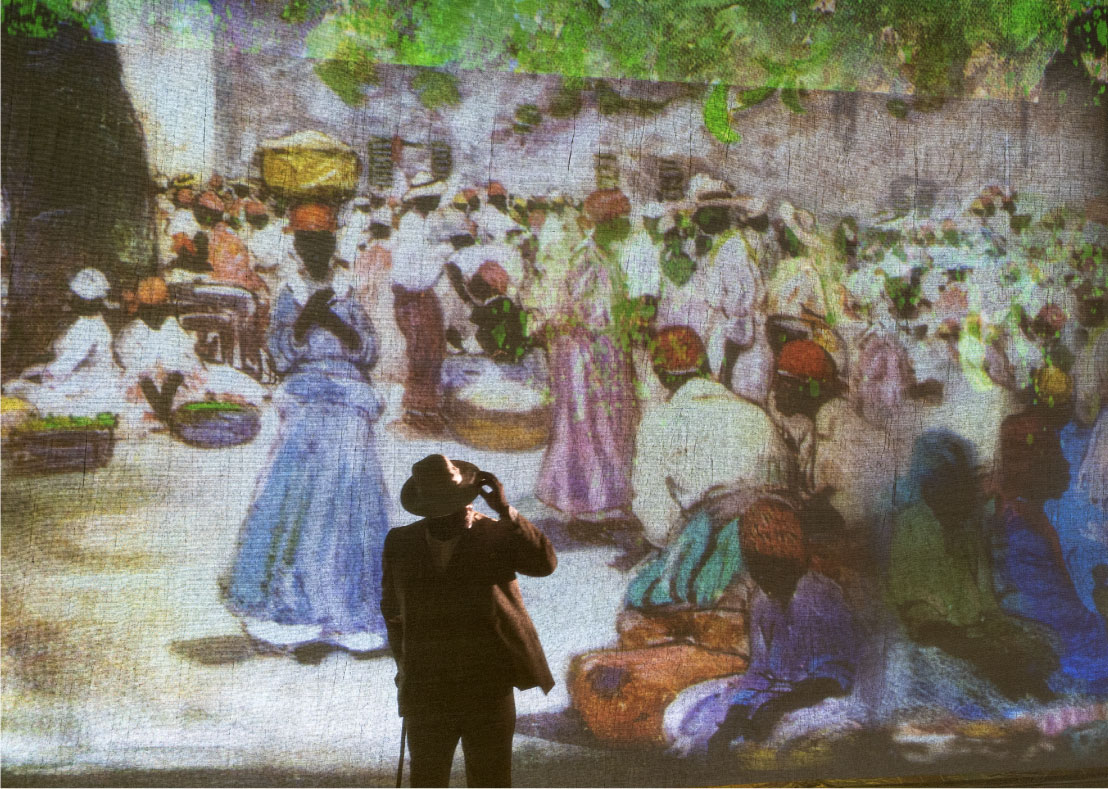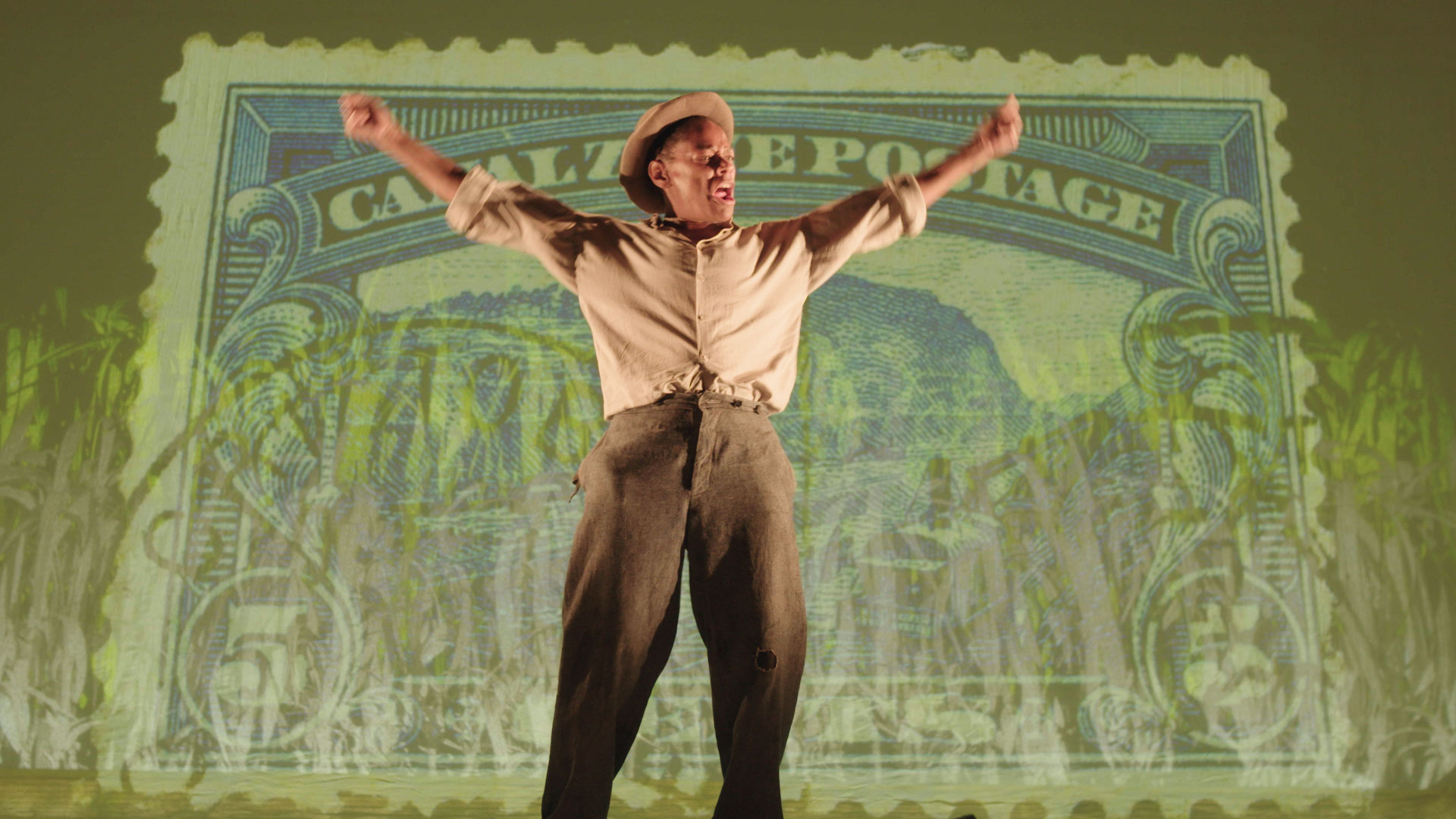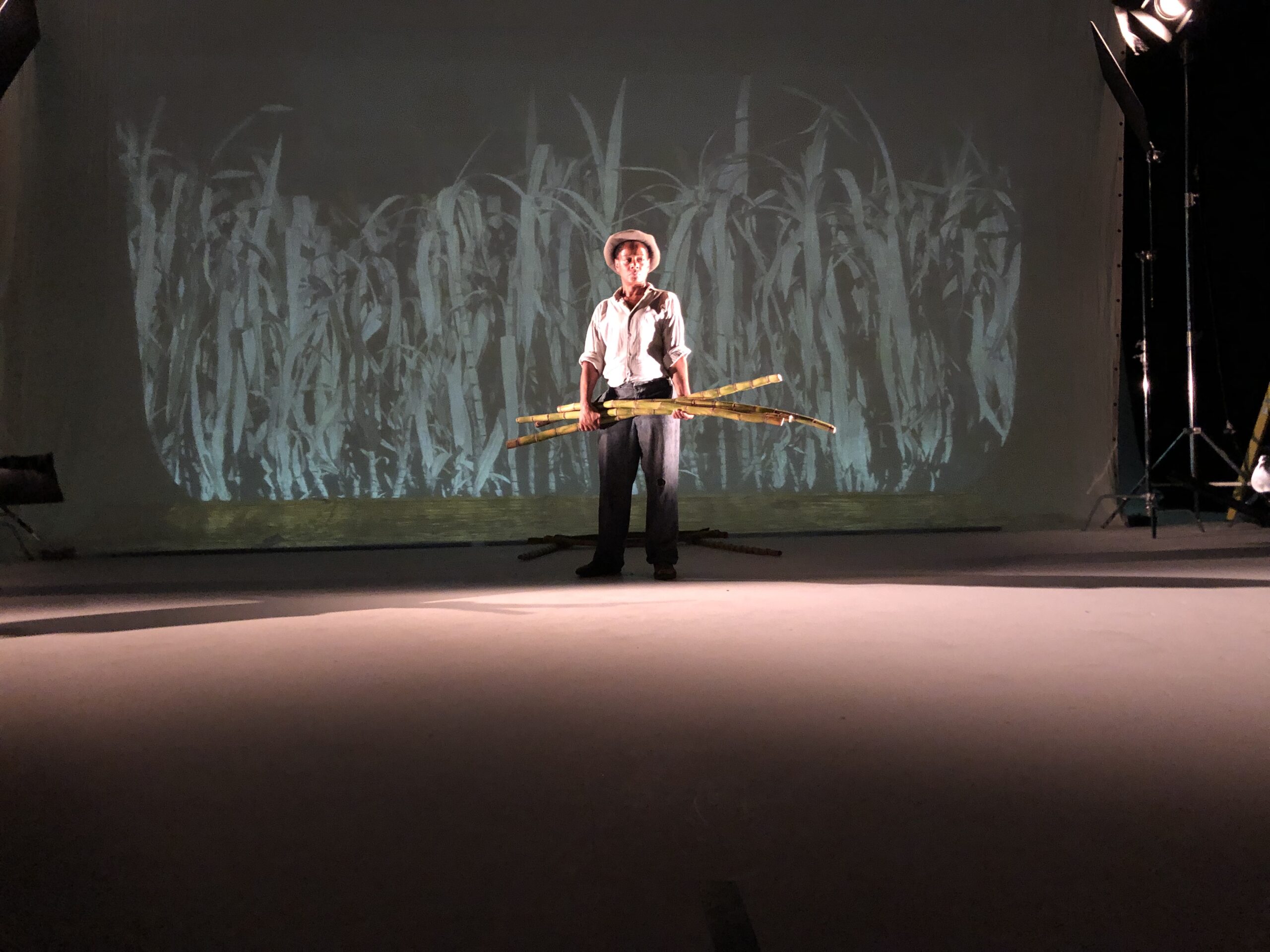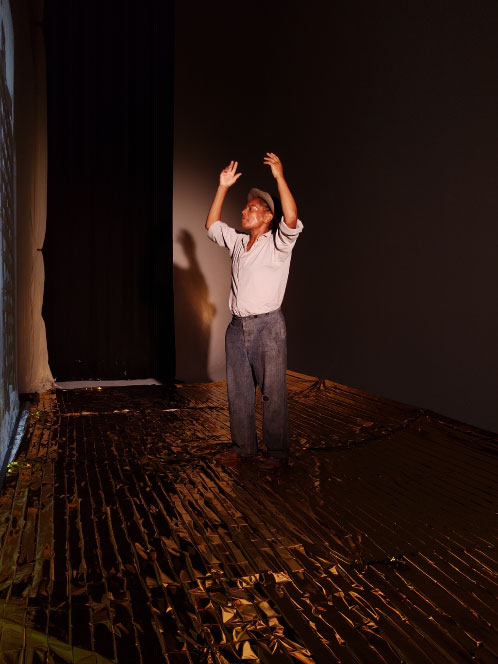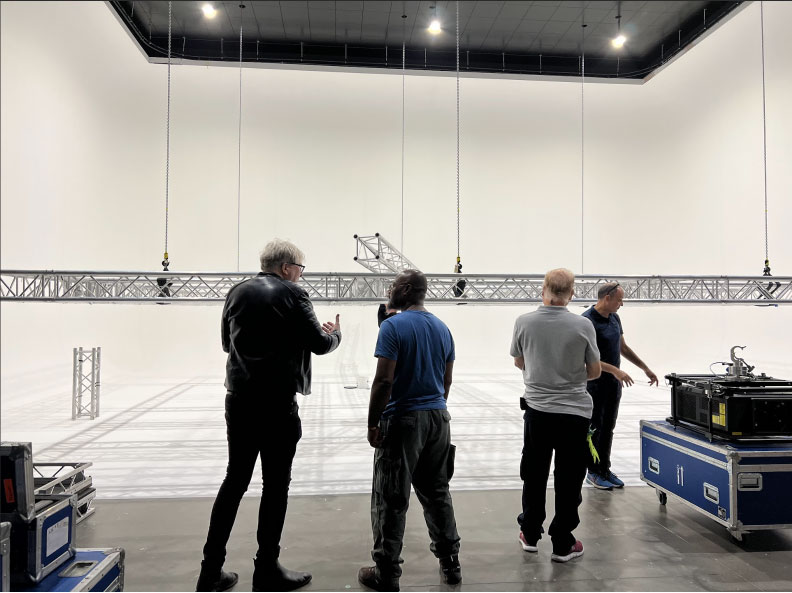Project:
TURNING POINT is a film installation and Black heritage comedy melodrama telling four stories set in 1920s Barbados and Jamaica. It has toured in screenings and as a film installation in museums, arts and community spaces.
Role:
Producing the TURNING POINT film with professional actors and community participants we used archival research and oral testimony to create an immersive film about ‘New Negro’ Black pride awakened in ordinary people of the British Caribbean after WW1
The Turning Point Project
TURNING POINT is a video installation and Black heritage comedy melodrama telling four stories set in 1920s Barbados and Jamaica. It is inspired by oral histories about the Black Caribbean experience after the First World War, and features performances by high-profile actors and rising stars against a backdrop of projected archive footage and a 3D soundscape of community participant voices. Showcasing performances from Paterson Joseph (The Beach, Vigil, Noughts + Crosses), Suzette Llewellyn (Holby City, Eastenders, Surgical Spirit), Ashley D. Gayle and Veronica Beatrice Lewis.
Barbados Slaves Work Song
TURNING POINT’s sound design features our own original interpretation of the unique, scarcely-known and deeply poignant “Barbados Slaves’ Work Song” (c. 1780).
In 2020, Barbados folk music specialist Roger Gibbs very generously shared his copy of the original manuscript housed at Gloucester Archives, along with its story: How in the late 1700s, Dr William Dickson, Secretary to the Governor of Barbados, heard the song being sung; wrote it down in music notation and relayed it to his friend Granville Sharpe the prominent abolitionist. Sharpe did further notation work on the song so that it could be used by anti-slavery campaigners. After 1838 slavery and apprenticeship ended in the British West Indies, Sharpe’s manuscript became ‘forgotten’ among family papers – until Roger Gibbs tracked it down.
Granville Sharpe’s Barbados Slaves Work Song manuscript is on the UNESCO Memory of the World Register as the world’s oldest notated music from Barbados, capturing the voices of enslaved African people, singing in call and response as they labour on a sugar plantation. But we believe Sharpe changed the song’s mood and tempo into a European ‘mournful dirge’ to stir sympathy for the abolitionist’s cause.
For TURNING POINT, two versions of the song were created in participant workshops with a group of singers. Version 1 is a steady call and response, where we imagined workers pacing themselves to do steady repetitive manual labour in 80-90 degree heat. Version 2 is an up-beat call and response game, where we imagined our singers to be back in the village after the working day, reviving their spirits.
You can listen to both versions of the song in our Resource page.
TURNING POINT Project
Neglecting early 20th century British Black history has prevented important understanding of British heritage and its legacy today. Coinciding with the centenary of civil rights struggle in Britain’s former slave colonies of the Caribbean after WW1, the TURNING POINT touring programme, developed by Sweet Patootee Arts, uses four narrative films set in 1920s Barbados and Jamaica to benefit learning, wellbeing, and build social cohesion nationwide through free workshops giving unique access to landmark interpretation of this heritage. Supported by the National Lottery Heritage Fund, the programme offers dementia support activities, heritage research skills in intergenerational oral history, Caribbean folk singing, and dance in Birmingham and London until December 2025.
Production
Our film is rooted in Tony T and Rebecca Goldstone’s eyewitness interviews and conversations gathered from 1997 to 2012 throughout the Caribbean, with women and men able to remember and share personal experiences in the late 19th and early 20th centuries. Returning to these interviews, our research revealed ‘freedom awakening’ after the First World War – TURNING POINT.
Inspired by our interviews, Tony created dramatic scripts for workshoping and rehearsals; with on-screen characters, who would interact with off-screen characters only heard in our 3D sound design.
Our vision was individual moments of ‘freedom awakening’ for ordinary Black women and men, evoked through the creativity, banter and humour of Caribbean folk-storytelling. The film’s settings are an open air market and sugarcane field – because they were hotbeds for gossip, conspiracy and defiance.
See some behind the scenes production images below.
Inspiring, compelling and diverse stories
Sweet Patootee Arts serves to tell heritage stories from the archives that can be retold and reshared for learning and educational purposes as well. You can access some of these archives for free on our Resources page.


